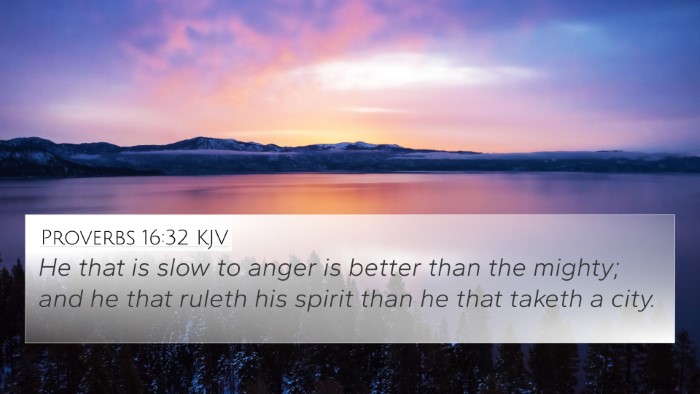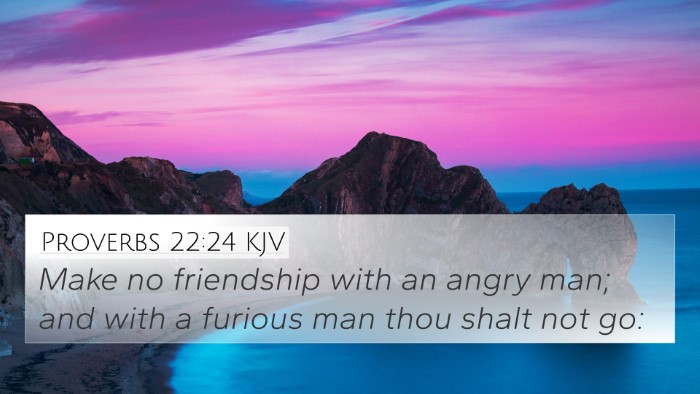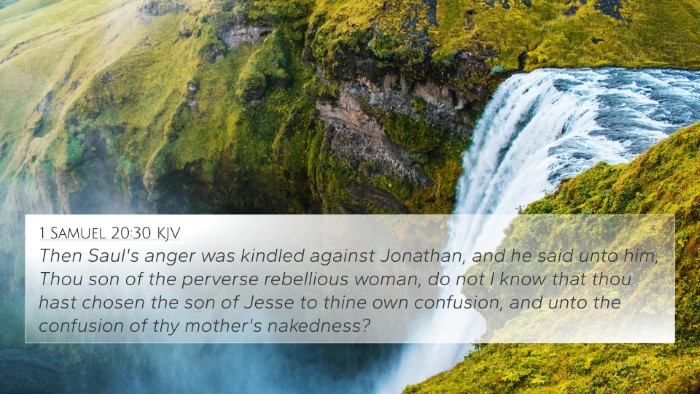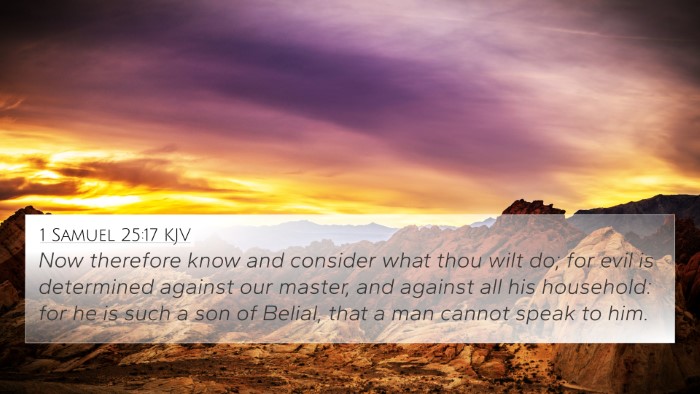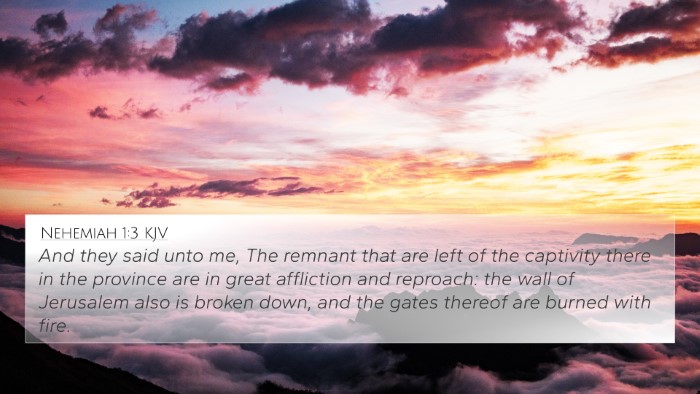Understanding Proverbs 25:28 - A Comprehensive Commentary
Bible Verse: Proverbs 25:28 (KJV)
"He that hath no rule over his own spirit is like a city that is broken down, and without walls."
Introduction
Proverbs 25:28 presents a powerful image of a person who lacks self-control. Drawing upon insights from renowned public domain commentaries such as Matthew Henry, Albert Barnes, and Adam Clarke, this summary explores the deeper meanings of this verse, highlighting its implications for personal discipline, emotional regulation, and spiritual maturity.
Exegesis and Summary of Proverbs 25:28
Concept of Self-Control: The primary theme of Proverbs 25:28 emphasizes the importance of self-governance. Matthew Henry refers to self-control as a vital quality that allows individuals to manage their passions and desires. Without such control, one becomes vulnerable to external pressures and internal chaos.
Imagery of a City Without Walls: The verse uses the metaphor of a city that is broken down and without walls to illustrate the vulnerability associated with a lack of self-restraint. Adam Clarke elaborates on this metaphor, indicating that like a defenseless city, an uncontrolled spirit is exposed to various dangers and temptations. It suggests that life's challenges can easily overwhelm those who cannot regulate their emotions.
Spiritual Implications: Albert Barnes notes that in a spiritual context, a person lacking control over their spirit cannot withstand the trials of life and faith. They may be swayed by their impulses, making it difficult to uphold spiritual principles and wisdom. In contrast, a person who exercises self-rule maintains resilience and stability.
Bible Cross-References
Several other Bible verses enrich the understanding of Proverbs 25:28. Here are 10 related verses that highlight themes of self-control, personal governance, and emotional fortitude:
- Galatians 5:22-23: These verses list the fruits of the Spirit, including self-control as a vital aspect of a believer's character.
- Proverbs 16:32: This verse emphasizes that he who is slow to anger is better than the mighty, underscoring the value of self-mastery over brute strength.
- James 1:19-20: It encourages believers to be quick to hear and slow to speak, highlighting the importance of emotional regulation in communication.
- 1 Corinthians 9:25: Paul compares the Christian life to an athletic competition, noting that athletes exercise self-control to win a perishable crown.
- Proverbs 13:3: This verse states that the one who guards their mouth preserves their life, connecting speech control to overall discipline.
- Philippians 4:5: It urges believers to let their moderation be known, suggesting a balance in behavior and temperament.
- 2 Timothy 1:7: This verse asserts that God does not give a spirit of fear, but of power, love, and a sound mind, relating to self-control.
- Proverbs 29:11: It describes the fool who gives full vent to their anger, contrasting emotional outbursts with prudent self-restraint.
- Romans 12:2: This verse advocates for transformation through the renewal of the mind, a process requiring self-discipline.
- 1 Peter 5:8: It exhorts believers to be sober-minded and vigilant, warning of the need for self-control amidst spiritual challenges.
Thematic Connections
Proverbs 25:28 serves as a pivotal point for thematic Bible verse connections regarding self-control and personal discipline. The themes learned from this proverb resonate throughout both the Old and New Testaments:
- Personal Discipline: Various scriptures, including those above, emphasize self-regulation as foundational for righteous living.
- Emotional Control: Emphasis on the importance of regulating emotions to maintain peace and prevent sinful reactions.
- Spiritual Warfare: Referencing verses about spiritual vigilance, highlighting that maintaining self-control is a form of spiritual warfare.
- The Role of the Holy Spirit: The transformative power of the Holy Spirit is a recurring theme to aid believers in self-control.
Cross-Referencing Biblical Texts
Engaging in cross-referencing Bible study methods allows for a richer understanding of Proverbs 25:28. By examining related verses, one can grasp the broader implications of self-control across various contexts:
- Establish clear connections to New Testament teachings on self-control as a fruit of the Spirit.
- Analyze the consequences of a lack of self-control in the stories of biblical characters.
- Explore prayers and psalms that invoke God's strength in reinforcing self-discipline.
Conclusion
Proverbs 25:28 effectively captures the essential need for self-control and governance over one’s spirit. By examining cross-references and thematic connections across the Bible, individuals can appreciate the meritorious pursuit of self-regulation not only as a personal endeavor but also as a spiritual mandate. Equip yourself with tools for bible cross-referencing to further enhance your understanding of the interconnectedness of biblical teachings.
By understanding this verse and its connections to others, the faithful can cultivate a deeper awareness of the importance of self-control in obdurate times, aligning their lives more closely with the teachings of Scripture.



